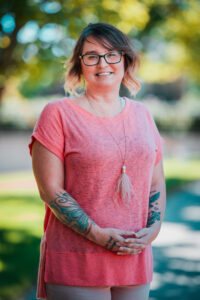Every year, as more and more older adults pursue their love of lifelong learning, the ranks of college seniors who are also senior citizens continue to grow. For the curious, this post will answer the question: What is lifelong learning? We’ll also discuss the benefits of lifelong learning for seniors and the different types of programs — either in a college setting or by pursuing your hobbies and interests with friends — that are available to you.

The Benefits of Lifelong Learning
Lifelong learning is by definition “the use of both formal and informal learning opportunities throughout your life in order to foster the continuous development and improvement of the knowledge and skills needed for employment and personal fulfillment.”
If you’ve thought about going back to school but never felt like you had the opportunity due to career and family obligations, now is a great time to pursue your interests. By continuing your education, you’ll not only expand your knowledge, but you’ll also receive benefits above and beyond what you learn in class, including improvements in these vital areas:
- Socialization: As we age, loneliness can become a big health risk factor that can impact our health and wellness. By choosing to go back to school, you can combat loneliness through social engagement, especially since you’re surrounded by people of all ages who share your educational goals.
- Cognition: According to research by Dr. Ipsit Vahia, director of geriatric outpatient services for Harvard-affiliated McLean Hospital, “New brain cell growth can happen even late into adulthood. The process of learning and acquiring new information and experiences, like through structured classes, can stimulate that process.”
- Health: A study by the University of Sussex in England found that reading for as little as six minutes lowered study participants’ stress levels, slowing their heart rates and easing tension in their muscles. And lower stress has wide-ranging benefits for seniors’ cardiovascular health, decreasing blood pressure and reducing the risk of a stroke or heart attack, boosting immunity, and lowering levels of depression.
- Happiness: Being fully engaged in learning something new has been found to provide satisfaction and happiness. However, to derive these benefits, the tasks must be difficult enough to really challenge you. It’s the challenge and overcoming it that produces improved health and happiness.

Different Type of Lifelong Learning
In 2018, 5.5% of college students were over 35 years of age. As you consider continuing your education, you have a variety of options to consider:
- University Degree: If you never attended college or were unable to complete your degree, now is the perfect time to finally achieve that goal.
- Community College: According to Consumer Reports, “residents 60 and older who meet set requirements can use tuition waivers to take for-credit courses, gratis. If courses for credit aren’t offered, mature students might still be able to audit a class without paying, gaining no credit but gleaning plenty of knowledge.”
- Specialized Programs: Many universities and colleges are now offering special programs and educational experiences for seniors that are not for credit, but solely for personal enrichment.
- Online Courses: If you have mobility issues or a lack of transportation, you can still continue your education by taking online courses.
- Free or Reduced Tuition: Some institutions of higher learning — like the George Fox’s Special Student – Adults 62 Program and the Portland Community College Senior Studies. Even Oregon State University and The University of Oregon –— allow seniors over age 65 to audit classes for free.

Lifelong Learning Doesn’t Have to Mean College Courses
Not all lifelong learning needs to happen on a college campus. You can receive the same social, cognitive, health and happiness by taking up a stimulating hobby like quilting, painting, digital photography, learning to play an instrument, keeping up with the latest technology, and so much more. Your local library also provides a treasure-trove of mentally stimulating books and also offers educational programs and presentations.
What Is Lifelong Learning at Friendsview?
In addition to having art classes and educational speakers and talks, some Life Plan Communities — like Friendsview — offer other opportunities. At Friendsview, you can audit a class or mentor a student at George Fox University, located just across the street from our community.
To learn more about our lifelong learning programs for seniors, call us at 503-538-3144 or use our Contact Us form.
 Nikki Deckon has been on staff at Friendsview since 2018 in various roles and in long term care for several years. Before working with seniors, she wrote/produced hundreds of talk radio programs and vignettes; was published in a couple of editions of Chicken Soup for the Soul and other print publications including The Oregonian, Kids NW, The Sun and more. After twenty years of marriage she feels that she’s still in the “honeymoon” phase and is enjoying raising her teenage boys in Newberg, a mere two miles from Friendsview.
Nikki Deckon has been on staff at Friendsview since 2018 in various roles and in long term care for several years. Before working with seniors, she wrote/produced hundreds of talk radio programs and vignettes; was published in a couple of editions of Chicken Soup for the Soul and other print publications including The Oregonian, Kids NW, The Sun and more. After twenty years of marriage she feels that she’s still in the “honeymoon” phase and is enjoying raising her teenage boys in Newberg, a mere two miles from Friendsview.








